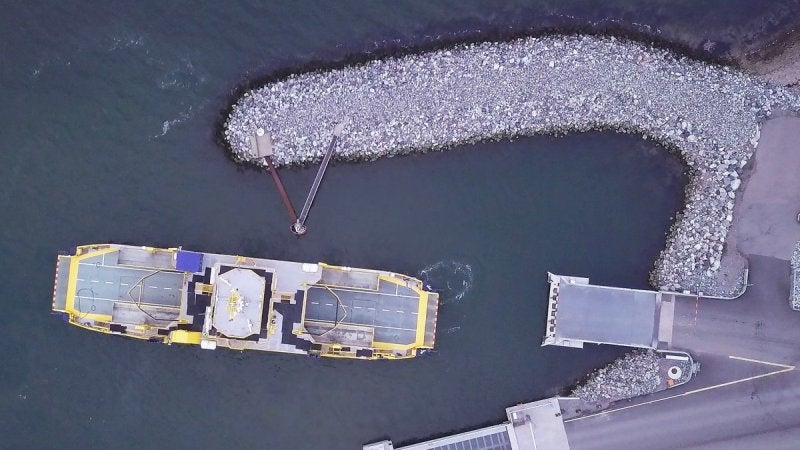
Finland’s state-owned ferry operator Finferries and Rolls-Royce have tested a fully autonomous ferry operation in the Turku archipelago between Parainen and Nauvo.
Named Falco, the 53.8m double-ended car ferry employed several Rolls-Royce Ship Intelligence technologies to navigate autonomously.
With 80 guests on-board, Falco detected objects using sensor fusion and artificial intelligence, while it also performed collision avoidance.
As part of the test, the vessel demonstrated automatic berthing with the newly developed Rolls-Royce Autodocking system.
The vessel features several advanced sensors to generate a detailed picture of its surroundings in real-time and with a level of accuracy beyond that of the human eye.
This situational awareness is created by combining sensor data, which is relayed to Finferries’ land-based remote operating centre in Turku.
How well do you really know your competitors?
Access the most comprehensive Company Profiles on the market, powered by GlobalData. Save hours of research. Gain competitive edge.

Thank you!
Your download email will arrive shortly
Not ready to buy yet? Download a free sample
We are confident about the unique quality of our Company Profiles. However, we want you to make the most beneficial decision for your business, so we offer a free sample that you can download by submitting the below form
By GlobalDataThe return journey of Falco was controlled by the remote operating centre, which was situated around 50km away from the sea and monitored by a captain.
Finferries CEO Mats Rosin said: “As a modern ship-owner, our main goal in this cooperation has been on increasing safety in marine traffic, as this is beneficial for both the environment and our passengers.
“But we are also equally excited about how this demonstration opens the door to the new possibilities of autonomous shipping and safety.”
Early this year, Finferries partnered with Rolls-Royce for a new research project called Safer Vessel with Autonomous Navigation (SVAN).
The SVAN project sought to continue to implement the findings from the previous Advanced Autonomous Waterborne Applications (AAWA) research project, funded by Business Finland.



